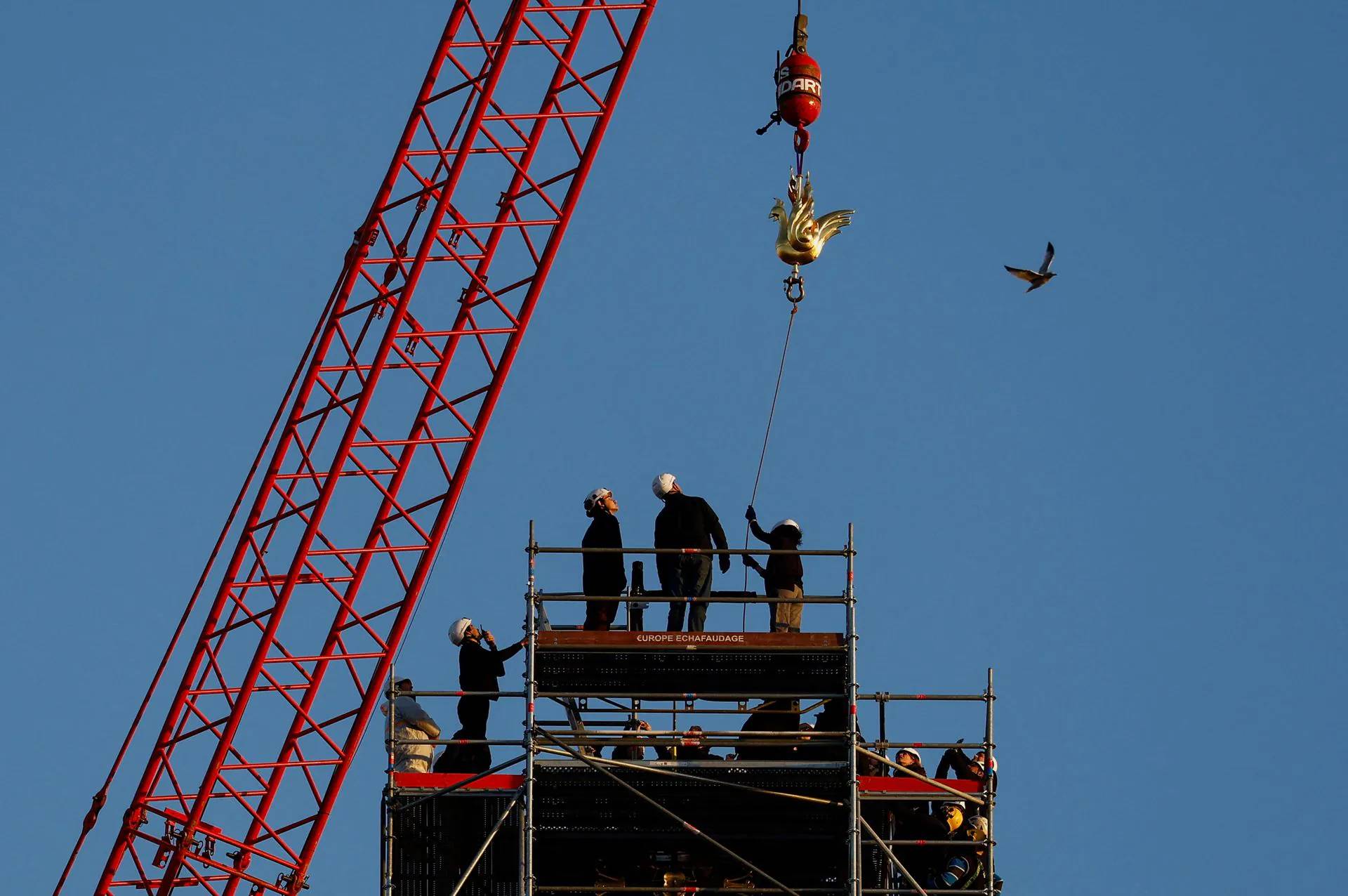Notre-Dame rooster back on Paris cathedral's spire as renovation enters final stage


PARIS — A large crane hoisted a new copper rooster back to the top of the spire of Notre-Dame on Saturday (Dec 16), a meaningful milestone as workers race to finish renovating the fire-damaged Paris cathedral in the next 12 months.
In the April 15, 2019 fire that ravaged the cathedral, the old rooster had crashed through the roof along with the wooden spire at the top of which it had been fixed. It was found dented but nearly intact among debris the day after the fire, and will be displayed in a new Notre Dame museum.
The new weather vane rooster, made of golden copper, was blessed by the Paris archbishop Laurent Ulrich during a ceremony on Saturday morning. Inside, it features religious relics and a parchment with long list of the names of workers as well as donors and patrons.
"It's a phoenix," said Philippe Villeneuve, the chief architect of historical sites who designed the flame-shaped rooster.
"(It) shows that the flame is carried to the highest point of the cathedral... the fire is carried up there, but it's a fire of resurrection," he said, recalling the moment when he was holding the fallen rooster in front of cameras after the devastating fire.
Last week, during a visit to the rebuilt spire, French President Emmanuel Macron pledged that reconstruction of the cathedral would be completed as scheduled and that it would reopen within 12 months.

While still surrounded by metal scaffolding, the spire has again been part of the skyline since late last month.
The 96-metre spire was not part of the original design of the cathedral — which was built over nearly 200 years starting in the middle of the 12th century. It was added during a 19th century restoration by architect Eugene Viollet-le-Duc.
After the devastating 2019 fire, the spire has been reconstructed in identical fashion, despite initial debate about whether to give it a modern twist.
Notre-Dame is set to reopen for religious services and to the public on Dec 8, 2024.
Some 500 workers are present on the site every day, racing to rebuild the cathedral, which has dominated the Ile de la Cite island in the River Seine since the Middle Ages.
From early 2024, workers will start waterproofing the oak roof with lead. Over the course of next year, the cathedral's furnishings, statues and artwork will be brought back in, as well as the organ, which had been taken out completely for renovation.
ALSO READ: Paris' Louvre museum to hike ticket prices by 29%